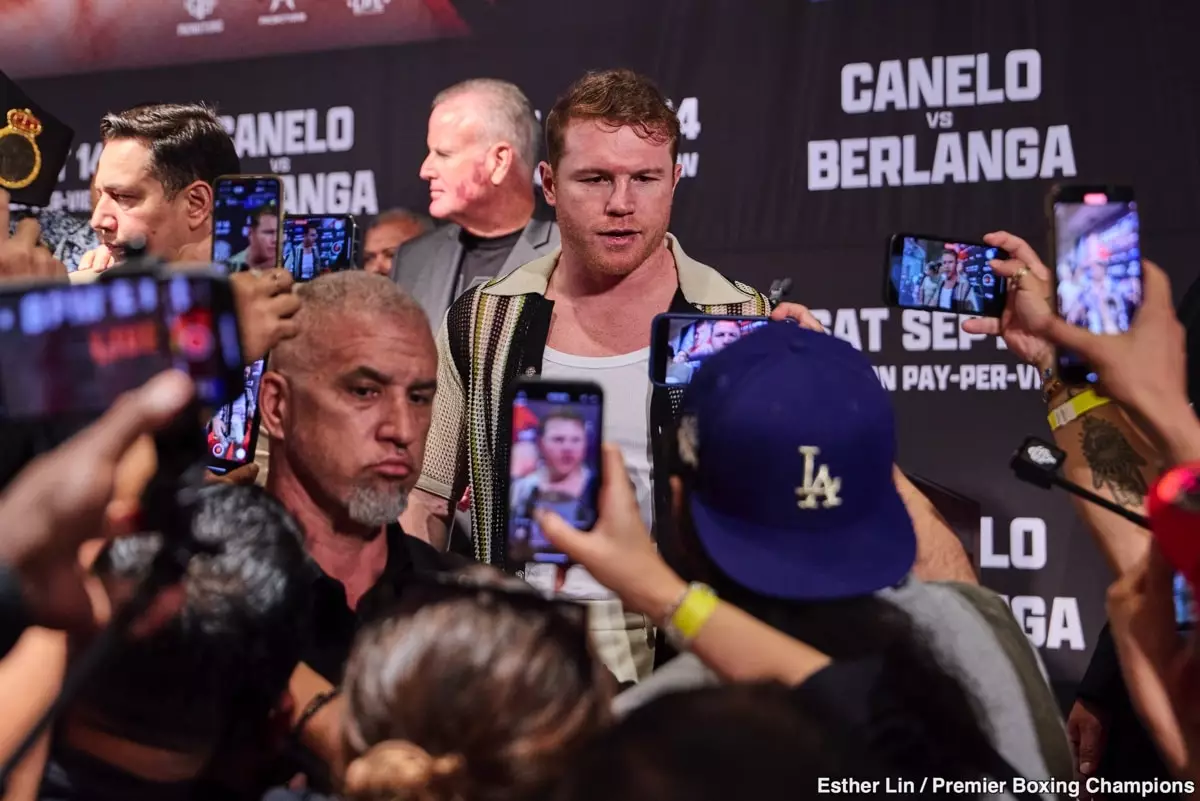Canelo Alvarez, the undisputed super middleweight champion, faces pivotal decisions regarding his next opponent, especially for a marquee event scheduled for the Cinco de Mayo weekend. According to recent reports, boxing insiders have identified two potential candidates: IBF champion William Scull and undefeated prospect Christian Mbilli. Both fighters have their pros and cons, and the choice Alvarez makes will undoubtedly influence his trajectory in a competitive boxing landscape.
William Scull, boasting a record of 23 wins and no losses, is perceived as the more straightforward option for Canelo. As a champion with limited knockout power—nine of his twenty-three victories—Scull might present an easier path to victory for Alvarez. However, his recent performance against Vladimir Shishkin raised eyebrows, showcasing an unremarkable display that some analysts deemed middle-of-the-road. The question arises: can Canelo truly afford to underestimate an opponent, even one who looks vulnerable? Alvarez’s own struggles in a recent clash against Edgar Berlanga, where he secured a contentious decision victory, serve as a stark reminder of the unpredictability of boxing. A complacent approach could play right into his opponents’ hands.
On the other hand, Christian Mbilli stands as a more formidable threat, with an impressive record of 28 wins, 23 by knockout. He possesses not only power but also remarkable stamina, capable of delivering a high volume of punches throughout an entire fight. For Canelo, this could be a double-edged sword. If he were to tire as he did against Berlanga, it’s plausible that someone like Mbilli, who maintains a relentless pace, might exploit any weakening of Alvarez’s defenses. Their clash would not only be a test of skill but also of fortitude—a battle of endurance where every round counts.
A significant aspect to consider is pivoting Canelo’s training and choice of opponent toward styles that will better prepare him for future challenges, notably against Terence Crawford, whom he is expected to meet later in the year. Scull, while not an exact match for Crawford, offers a more boxing-centric approach that could mimic some elements of Crawford’s style. Engaging in a bout with Scull might serve as effective preparation, allowing Alvarez to hone specific tactics and techniques needed for a strategic showdown.
However, the stakes go beyond mere preparation; there’s also a fan engagement component. A match against Scull may lack excitement for the casual audience, who may not recognize Scull’s name. Conversely, a fight with Mbilli could generate buzz, as fans are drawn to his kinetic style and knockout ability. Yet, if Canelo performs poorly against either fighter, the repercussions could extend beyond just a loss, tarnishing his legacy and marketability as a leading figure in the sport.
As negotiations unfold for Alvarez’s next matchup, the choice between Scull and Mbilli will serve as a reflection of his strategic ambitions. While Scull offers a less perilous encounter and potential avenue to championship accolades, Mbilli represents a challenge that may ignite excitement among boxing fans. Alvarez must weigh the importance of maintaining his status in the ring against the necessity of entertaining his audience—a balance crucial for longevity in a career where every fight counts. The coming months will be critical, not just for Canelo’s record but also for the legacy he aims to solidify within the annals of boxing history.

